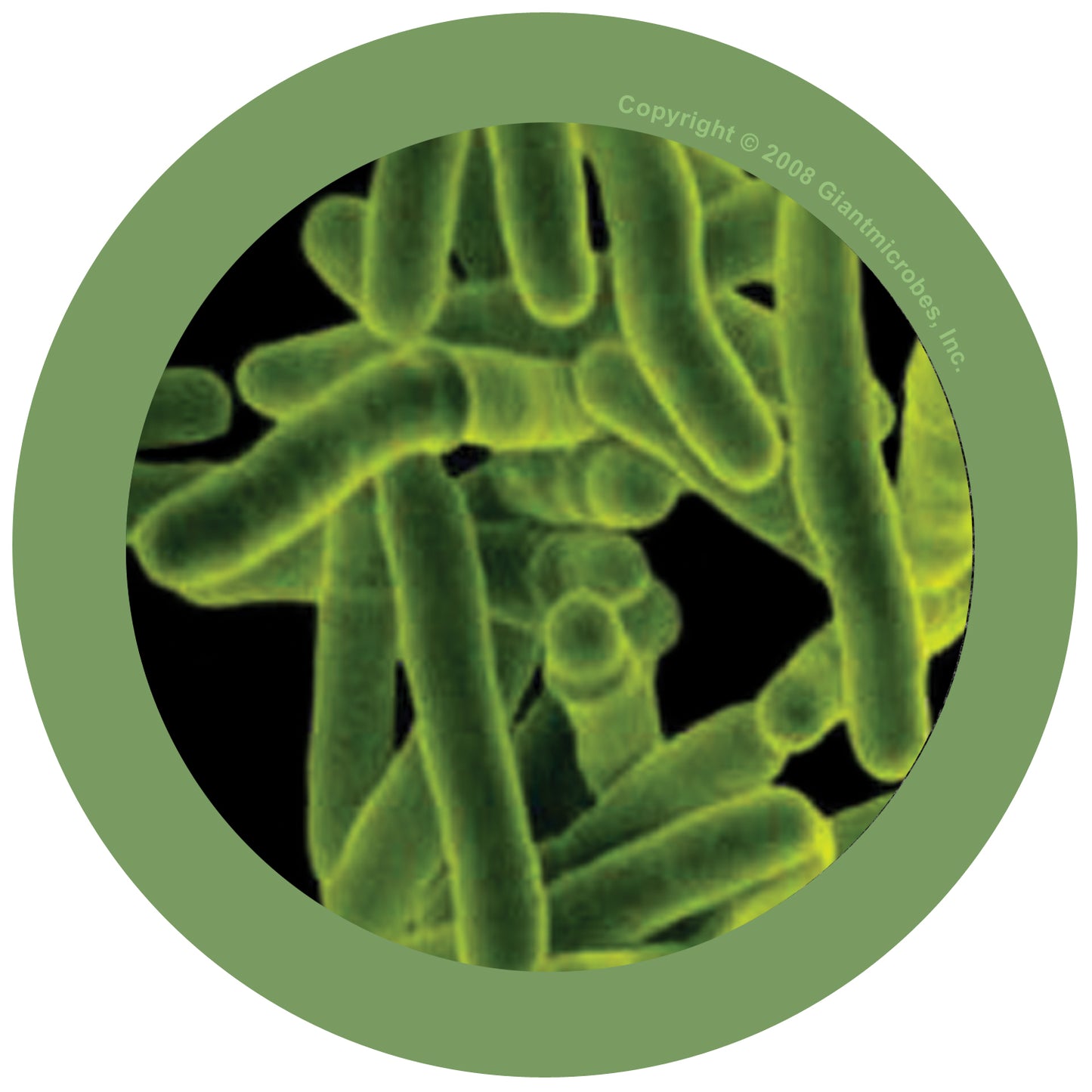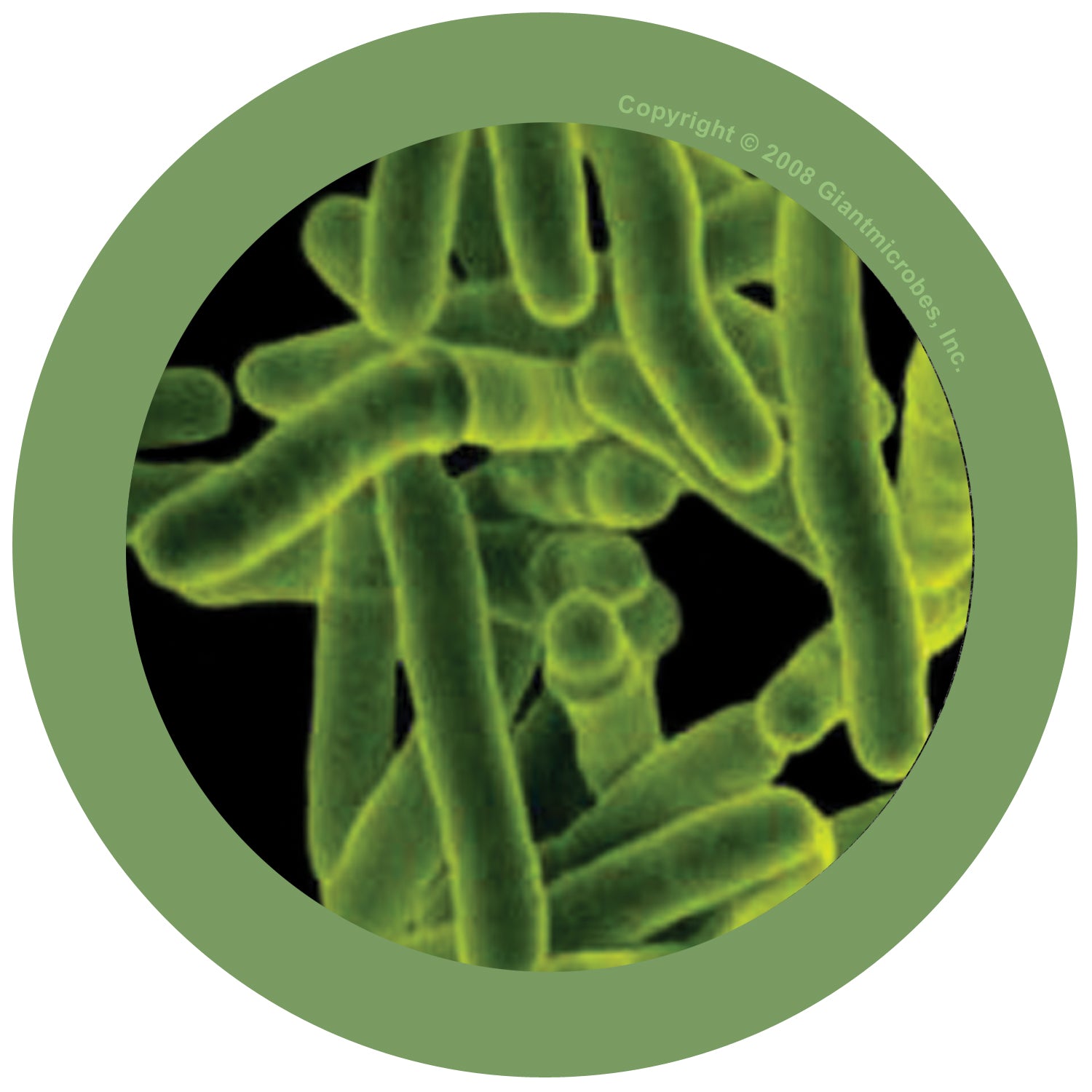TB (Tuberculosis)
TB (Tuberculosis)
Couldn't load pickup availability
TB can infect any part of the body and can remain in a latent state for periods of time. Coughing and sneezing are the most common causes of TB transmission. Typically, TB targets the lungs and throat. During the latency period, the TB-resistant host is not contagious. Testing and drug-treatments are now available for TB.
All About TB (Tuberculosis)
FACTS: Tuberculosis, or TB, is a disease caused by the mycobacterium tuberculosis bacteria. TB can infect any part of the body, but typically targets the lungs and throat. Coughing or sneezing by infected persons is the most common cause of transmission. Unfortunately, TB bacteria can remain in a latent state so that infected persons who do not initially contract TB are still at risk of developing the disease later in life, should their immune systems ever weaken. (During the latency period, the TB-resistant host shows no symptoms of TB and is not contagious.)
Although TB symptoms vary depending on which part of the body the disease infects, symptoms of TB of the lungs typically include:
• A bad cough lasting more than two weeks
• Coughing up blood or sputum (phlegm from deep in the lungs)
• Chest pain, fever, fatigue/weakness, chills, weight loss, loss of appetite, and night sweats
Both active and latent TB can be detected by injecting tuberculin under the skin and examining resultant bumps. Testing is recommended for:
• Persons who have symptoms of TB, or have been exposed to TB
• Persons from places with elevated TB rates, such as Africa, Asia, the Caribbean, Eastern Europe, and Latin America – as well as prisons, migrant farm camps, nursing homes, and homeless shelters
• Persons with weakened immune systems, such as H.I.V. carriers, children, and the elderly
Fortunately, drug treatments are available for TB. However, to prevent TB bacteria from becoming drug-resistant, patients must not stop drug treatments prematurely. While the symptoms of TB may abate after a few weeks, the bacteria are not fully eradicated for at least six months.
Information is provided by the Center for Disease Control.
| NAME | Mycobacterium tuberculosis is the species of bacterium that causes the TB disease. The name White Plague comes from the paleness of people with TB. |
|---|
| WHERE IT LIVES | People are infected by breathing in airborne TB bacteria. TB disease is caused when the immune system can’t stop the bacteria from multiplying in the body. Therefore, people with weakened immune systems are at a higher risk of developing the disease. Sometimes, people can be infected without being contagious or becoming sick. This condition is called latent TB infection. Fun gift for doctors or historians! |
|---|
| SYMPTOMS | The bacteria attack the lungs, which can cause coughing and chest pain. Other symptoms include chills, fever, night sweats, weakness, and loss of appetite. |
|---|
| CURE | There is a vaccine. People with latent TB infection should take drugs to prevent the disease. People with TB disease should take 6-9 months worth of antimycobacterial drugs like isoniazid. Without treatment, the disease can progress and become fatal. |
|---|
| HISTORY | 1882: Robert Koch discovered the bacterium that causes TB- Mycobacterium tuberculosis. 1921: The BCG vaccine for TB, developed by Calmette and Guerin, was introduced. 1952: Selman Waksman awarded Nobel Prize for methods leading to the discovery of streptomycin, the first drug to treat TB. Albert Schatz and Elizabeth Bugie were also part of the research team. Big Outbreaks: 1700-1900: The White Plague in Europe caused millions of deaths. 1992: TB in the United States peaked for the decade with >26,600 cases for the year. Recent Outbreaks: March 2015: 27 people at a Kansas High School have TB. |
|---|
| FASCINATING FACTS | TB was one of the leading causes of death in the U.S. in the early 1900’s. Famous People Who Had TB: Eleanor Roosevelt died of a drug resistant strain of TB. |
|---|






